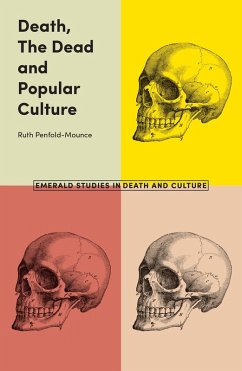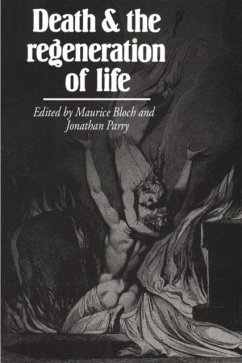
Death, Memorialization and Deviant Spaces (eBook, PDF)
Versandkostenfrei!
Sofort per Download lieferbar
31,95 €
inkl. MwSt.
Weitere Ausgaben:

PAYBACK Punkte
16 °P sammeln!
This book offers an ethnographic exploration of three sites of infamous atrocity and their differing memorialization. 'Dark tourism' research has studied the consumerization of spaces associated with death and barbarity, whilst 'difficult heritage' has looked at politicized, national debates that surround the preservation of death. This book contributes to these debates by applying spatial theory on a scalar level, particularly through the work of Henri Lefebvre. It uses escalating case studies to situate memorialization, and the multifarious demands of politics, consumption and community, wit...
This book offers an ethnographic exploration of three sites of infamous atrocity and their differing memorialization. 'Dark tourism' research has studied the consumerization of spaces associated with death and barbarity, whilst 'difficult heritage' has looked at politicized, national debates that surround the preservation of death. This book contributes to these debates by applying spatial theory on a scalar level, particularly through the work of Henri Lefebvre. It uses escalating case studies to situate memorialization, and the multifarious demands of politics, consumption and community, within a framework that rearticulates 'lived', 'perceived' and 'conceived' aspects of deviant spaces ranging from the small (a bench) to the very large (a city). The first case study, the Tyburn gallows site in York, uses Lefebvre's notion of 'theatrical space' to contextualize the role of performativity in memorialization. The second, Number 25 Cromwell Street in Gloucester, builds on this by exploring the absence of memorialization through Lefebvre's concept of 'contradictory space' and the impact this has on consumption. The third expands to consider the city as a problematic memorial, here focusing on the political subjectivities of Dresden - rebuilt following the devastation of the Second World War - and its contemporary associations with neo-Nazi and anti-fascist protests. Ultimately, by examining the issue of scale in heritage, the book seeks to develop a new way of unpacking and understanding the heteroglossic nature of deviant space and memorialization.
Dieser Download kann aus rechtlichen Gründen nur mit Rechnungsadresse in A, B, BG, CY, CZ, D, DK, EW, E, FIN, F, GR, HR, H, IRL, I, LT, L, LR, M, NL, PL, P, R, S, SLO, SK ausgeliefert werden.













